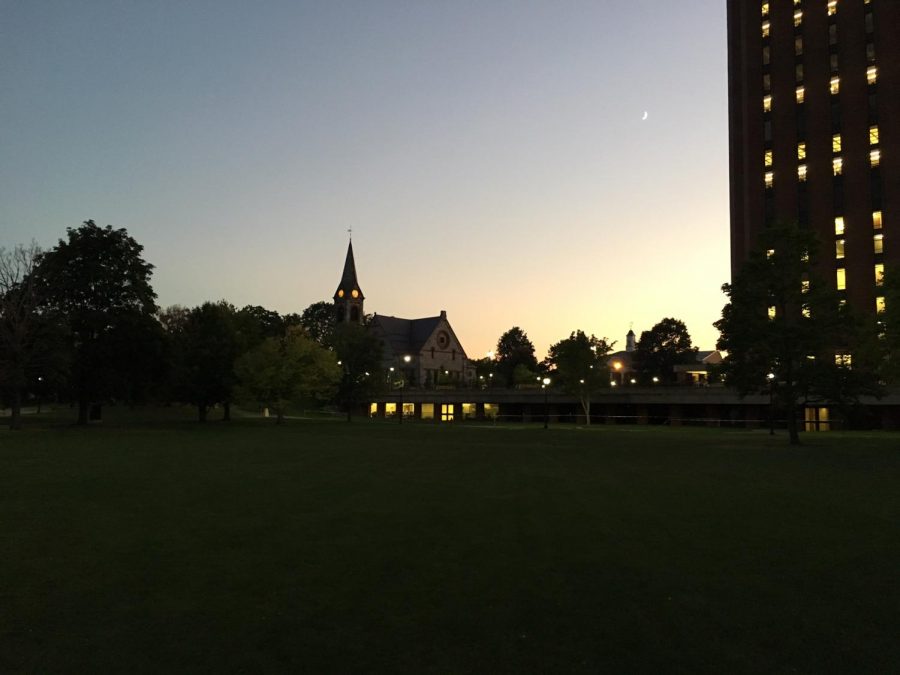The Josephine White Eagle Cultural Center has been a welcoming and inclusive space for the Indigenous community at UMass since 1988. Today, the JWECC maintains its role as a safe place for Indigenous students while working to get back to its former glory.
The JWECC was named after Josephine White Eagle, the first tenured Native American professor at UMass. She was deeply invested in the Native American Student Association (formerly the American Indian Student Association) and was praised for her work in the development of a Native cultural center and her advocacy for Native students.
“It was a big deal for the students,” said Michelle Youngblood, Associate Director of the Center for Multicultural Advancement and Student Success. Youngblood attended UMass in 1987, a year before Josephine White Eagle passed away. In appreciation of her dedication to the Native community, students named the cultural center after White Eagle.
Justin Beatty, a UMass alum, visual artist and cultural educator described his experience with the JWECC.
“The idea was ‘Here’s a space on campus for Native folks to access, practice and express themselves culturally without the difficulties that come with expressing who you are when you’re not part of the mainstream,’” Beatty said. Theoriginal space was small in 1992, but Native students were able to “expand the space through a lot of lobbying, talks and protesting.”
Now, the JWECC has a large main room, a computer room with storage space, and a library for materials related to Native American studies and history.
Additionally, the space was outfitted with heat sensors instead of smoke detectors to allow Native students to practice smudging, the ceremonial burning of tobacco, sage and other sacred plants.
“It was a very welcoming space,” Beatty said. “It was not uncommon to find Native students in there all hours of the day or night doing work, studying and practicing aspects of their culture. It was a place for us to get to know each other… most people don’t really understand that there isn’t one Native American culture… but in that space, it gives you the chance to interact with other Native folk that you might not normally get a chance to.”
The space was also inclusive to non-Native students that were interested in Native culture and wanted to learn from Native students.
“It also offered non-Native folks an opportunity and a space to interact with Native folks where they have the opportunity to control the narrative,” Beatty said.
The center still serves its educational purpose, as the JWECC hosts events for students to learn about Native heritage.
“Prior to the pandemic, we had a lot of students who were involved. The center would offer beading… moccasin-making workshops… and a gathering celebration before winter comes,” Youngblood said.
The pandemic hit Native communities hard, and while efforts to stay connected like Beatty’s virtual powwow of over 170,000 participants were successful, maintaining a tight sense of community was difficult.
“Due to COVID-19 and all the cultural centers shutting down, a lot of the centers lost a lot of staff,” Youngblood said. “We have staff at the center, but none of them are Native to this land.”
She aims to increase recruiting measures and to regain the positive momentum that was lost in the pandemic.
Currently, the Native American Student Association has low numbers and the JWECC is not being utilized as heavily as it was in the past.
Beatty views the low numbers of Native students in the cultural center and the NASA as sign that the school should do more to support these students.
“Could UMass be doing more? Absolutely. The school has yet to realize the value of native students as a whole,” Beatty said. “How do I tell another young student to come to UMass in good faith? It’s a good school in the level of education, but the amount of support is not what it could be.”
Beatty hopes that UMass can become a “beacon” of Native support and believes that if UMass tangibly increases their support for their Native students, faculty and staff, more Indigenous people will come to the University.
Lucas Ruud can be reached at [email protected].




















